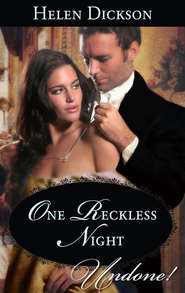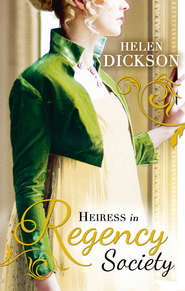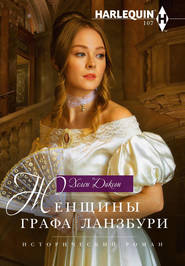По всем вопросам обращайтесь на: info@litportal.ru
(©) 2003-2025.
✖
A Traitor's Touch
Автор
Год написания книги
2018
Настройки чтения
Размер шрифта
Высота строк
Поля
The gardener waited a while longer, watching a swan with three cygnets in her wake sail stately by. Then the child got to her feet. Her face glistened with tears and bewilderment filled her green eyes as though she was desperate to understand why her mother had left her.
‘Please don’t hurt her.’
Swallowing hard with a resolute nod, for one heartbreaking moment, the gardener looked down into the young face. ‘I won’t.’ And so, carefully, more carefully than he had ever done anything in his life, he bent and took the dead woman into his arms, trying not to look at her face as he carried her to the house.
* * *
The funeral coming so soon after her father’s interment was too much for the child. She drew in a breath of panic. She did not want to be there. She did not want to be afraid all the time—afraid of death. Her father’s brother, Uncle Matthew, came and took her in his arms.
Matthew shook his head in despair. Tears lit his eyes. He tried to explain. All this had happened because her father was a Jacobite. Matthew was of the opinion that men should be free to worship God as they chose, as long as they obeyed their king and did no harm by it. Tragically his brother had supported the wrong kind. The Jacobite cause had been his life. Even when he was condemned he saw his last journey to the scaffold as a veritable moment of glory, as though he were raised suddenly to celebrate for his good deeds, instead of hanged for his seditious acts against the Crown.
The girl could not get beyond the Jacobite word. This new knowledge of the circumstances surrounding her father’s execution, followed so quickly by her mother’s suicide, haunted her day and night. The anger and hate directed at the Jacobites entwined, swelling and blooming inside her, threatening to consume her body and soul. It was anger and hatred more acute and darker than anything she had ever known.
And then Uncle Matthew took her away—to London—putting as much distance between her and the event as was possible.
Chapter One
1745
Baron Charles Lucas and his wife Dorothy had embraced Henrietta in her hour of need and taken her into their lives and their home with the kind of easy, unconscious goodness that was born of good breeding and a happy life.
And now they were both dead. Along with their coachman, they had sustained fatal injuries in a carriage accident when they were travelling home from the theatre. Within the space of twenty-four hours, Henrietta was forced to grow up quickly and keep herself in control for the sake of the grieving servants. But beneath her calm exterior she endured a sickening and inevitable turmoil over the loss of the two people who had given her a sense of worth and for whom she had borne a real and unselfish love.
She closed her eyes as the enormity of their loss made her realise how alone she was and she knew she would have to consider wisely how to make the best of her circumstances and to think about her future. After considering the advantages his niece would reap in London, including learning everything a young lady should be cognizant of, Uncle Matthew had placed her in the hands of Baron Lucas and his wife Dorothy, her mother’s dearest friend. They had been delighted to become Henrietta’s legal guardians. She was the apple of their eye, the child they had never had.
Uncle Matthew was the only family Henrietta had. As a youth and being a scholar with much intelligence and curiosity, he had sought to quench his thirst for knowledge and had gone abroad to enrich his education. He had been gone some time. When he came home, expecting to be welcomed by his brother, he had found unexpected tragedy. Never having married and seeming to have a dislike for all society following the terrible circumstances of his adored brother’s brutal death, he’d acquired a crofter’s cottage close to Inverness and, surrounded by his precious books, become something of a recluse. Henrietta knew she could be sure of a warm welcome there.
But maybe she wouldn’t have to leave London. Dorothy had assured her that she would be well provided for. Henrietta remembered how the dear lady, who’d insisted she call her aunt, had smiled and said that Henrietta’s mother had been a good friend to her—as close as sisters they had been—and that she honoured her memory in the best way she knew by honouring and taking care of her daughter to the best of her ability.
Remembering this, Henrietta swallowed and set her jaw.
Hearing carriage wheels on the gravel drive, she glanced out of the window. Her heart sank. It was dark, but she could see by the carriage lamps that her guardians’ nephew, Jeremy Lucas, had arrived at Whitegates to claim his inheritance. Followed by his wife, Claudia, he breezed through the great entrance hall and into the salon where Henrietta was sifting through some correspondence, mainly letters of condolence from friends of the elderly couple.
The moment Jeremy entered the room with his wife flouncing after him the atmosphere thickened with tension. Tall and lanky and fashionably attired without prudence, he walked with a swagger as if he owned the world. He was a popular, much sought-after figure about town and could be charming when the occasion demanded it, but Henrietta had seen the cold, cunning heart behind the charm. He was inclined to call at the house unannounced. The last time had been the day after the accident. He hadn’t seen fit to turn up for the funeral which had been a mere twenty-four hours ago.
Henrietta rose, smoothing down her black skirts as she turned to face him. Jeremy felt a deep resentment towards her and had never made any attempt to disguise the fact.
‘Jeremy! You were not expected. However, you are welcome.’
While his mind noted the young woman’s perfunctory courtesy to him, his mind catalogued the valuables in the room. ‘I should damned well think so since it’s my house.’ His eyes gleamed overbright as he strutted like a well-preened rooster on the oriental carpet, eyeing and fingering precious heirlooms he had coveted for years.
Henrietta’s face tightened with the effort of holding back a sarcastic rejoinder. She braced herself for what was to come, for after her dealings with this man in the past she knew it was not going to be pleasant. She glanced at Rose hovering in the doorway, a pensive look creasing her round face.
‘Is everything all right, Miss Brody?’ she enquired, glancing nervously at the visitors.
‘Yes, thank you, Rose.’
Rose stepped back, but was not out of sight. Her faithfulness to her mistress remained as strong as the time when she had come to live with Baron Lucas and she had long ago proven her confidante in the most troubling times.
‘Bring us some refreshment, will you, Rose?’
The maid bobbed a curtsy and hurried away.
Henrietta and Jeremy Lucas were isolated enough that they could converse in private in the salon, yet the servants were still close enough that Henrietta did not feel as if she was under any threat. It was indicative of her mistrust of Jeremy that she even thought of such things—that she was actually considering herself to be in possible danger in her own home.
‘The servants are disrespectful,’ Jeremy informed her as he sat down heavily on a chair, stretching his long legs out in front of him, unconcealed malevolence in his pale blue eyes as they swept insolently over her. ‘But no matter. I have not come here to discuss something that can be replaced.’
Henrietta stiffened, all her senses alert. ‘Replaced? What are you talking about?’
‘Servants are two a penny. Now I’ve come to take up residence, if any of them want to remain they must know their place.’
‘Quite right, Jeremy,’ Claudia piped up in her shrill voice. ‘You show them how you mean to go on from the start and that you’ll stand for no interference from them.’
Henrietta looked at Jeremy’s wife. During several visits, Henrietta’s red-gold tresses had incensed the hard-faced virago, causing Claudia to berate the whole Scottish race as being slow-witted and to demean Henrietta as a heathen, a derogatory appellation many an English Protestant was wont to lay on the Roman Catholics.
True to form, Claudia was gaudily attired, her generous assets amply displayed. She wore too much powder and paint for good taste. Her dark hair was piled high on her head and a black patch dotted her cheekbone. With her nose tipped disdainfully high, her hazel eyes hostile, Claudia gave her a haughty smile as she doffed her gloves and tossed them aside. Prowling slowly about the room, her skirts swishing in her wake, she trailed well-manicured fingers across polished surfaces, lingering on a valuable figurine while eyeing other knick-knacks as if to assess their value.
‘If you have come to discuss the will, Jeremy,’ Henrietta said, trying to hide her aversion to the man, ‘the solicitor is coming tomorrow.’
‘I am aware of the contents, Henrietta. I called on Braithwaite earlier. As you know, Braithwaite has had the honour of being the family solicitor for the past ten years—’
‘Who has been absent—America, I believe—for the past two years,’ Henrietta pointed out.
‘I am aware of that, but he has recently returned,’ Jeremy retorted, irritated by her interruption. ‘He made up my uncle’s last will and testament.’
‘Which you are telling me he has made privy to you. Clearly there has been some mistake and your uncle had not informed you—’
‘Be quiet,’ Jeremy snapped, shoving himself out of the chair and glaring down at her, his long, ungainly body quivering like a snake about to strike. ‘I’m not interested in what you have to say. My uncle kept a copy of the will, which I will find in his study when I go through his papers—and which I intend doing this very night. But understand this, Henrietta Brody. Everything has been left to me. The house, the money—everything—and I aim to take immediate possession.’
A feeling of alarm began to creep through Henrietta. She had never discussed such matters with her guardians. Indeed, there had been no reason to do so. But she knew they had cared for her and would not have been so unconcerned for her that in the event of their demise they would have failed to make provision for her future. She had certainly not expected much, but she could not believe they would have overlooked the matter.
‘You were not included,’ Jeremy went on. ‘But then why you should think my aunt and uncle should have left you anything at all defeats me. You were not a relative. You were nothing to them.’
‘Jeremy’s right,’ Claudia’s shrill voice piped up. Catching Henrietta’s look of disdain, she bristled. ‘And don’t look at me like that. Jeremy will wipe that smirk off your face when he sends you packing. You think you’re better than me, don’t you, you stuck-up Scottish witch—you and your high-handed ways. Well, you’re wrong. You’re not fit to clean my shoes.’
Even after enduring the loss of her guardians and Jeremy’s cruel words, Henrietta refused to yield to Claudia that very thing she craved most—an undeniable feeling of superiority. Highly offended by his words, though her anger and animosity rose up within her, she forced herself to remain calm. ‘I do not believe that and I was certainly not expecting anything of value. Having lost both my parents and being alone in the world, I was extremely grateful when they welcomed me into their home. I was deeply devoted to your aunt and uncle and I know that over the years they grew attached to me. Your uncle was a methodical man about his affairs and I cannot believe that when the situation changed and my own uncle made him my legal guardian he would not have made provision for me—at the very least to give me time to vacate the house when you took possession.’
Jeremy smirked. ‘Well, he didn’t,’ he bit back, thoroughly enjoying putting her in her place. ‘I expect they were fed up with you mooning about the house and hoped to marry you off before their demise. Just who do you think you are? A lady?’
‘If you knew your aunt and uncle at all, you would not have said that. They were good, kind people and would not brush people off so easily—especially those they cared about.’
Jeremy reached out and jerked Henrietta’s face around, his long, clawlike fingers bruising her tender flesh. ‘Where you are concerned they appear to have done just that. I own this house now. I am master here and as soon as the will has been read I want you out of it.’ Removing his hand, he thrust her away.
Henrietta stared at him. She was now certain that he was not aware that his uncle had executed a new will, let alone changed his solicitor. It didn’t augur well for the future. Displeased with the way Mr Braithwaite conducted his business—he was not a man noted for his discretion—both his uncle and aunt agreed that Mr Goodwin, a barrister in the city, was a man of probity, wisdom and common sense in equal proportions. She was surprised that Mr Braithwaite, who was a close friend of Jeremy’s, had failed to mention it. Although why on earth he should not have done when he had nothing to gain by not doing so she could not imagine. She was on the point of informing Jeremy herself but when he began bearing down on her once more, his cold eyes conveying to her that if he became vexed or angry enough he would have her forcibly removed, her mouth went dry.
Recognising her fear, Jeremy felt a surge of power. He laughed, a thin, cruel laugh that chilled Henrietta. ‘You, Miss Henrietta Brody, have been a drain on this family for too long, playing on my aunt and uncle’s goodwill when they took you in, living in the grand manner you think is your due. You have got above yourself. Enough is enough, I say, so pack your bags and be ready to leave as soon as Braithwaite has read the will.’
‘That’s right, Jeremy. You tell her straight,’ Claudia quipped while running her fingers appreciatively down the thick damask curtains and eyeing the crystal chandelier and Turkish carpet beneath her feet. ‘Nothing but a beggar—an upstart she was. She doesn’t belong here—never did. It’s time she was put in her place.’












